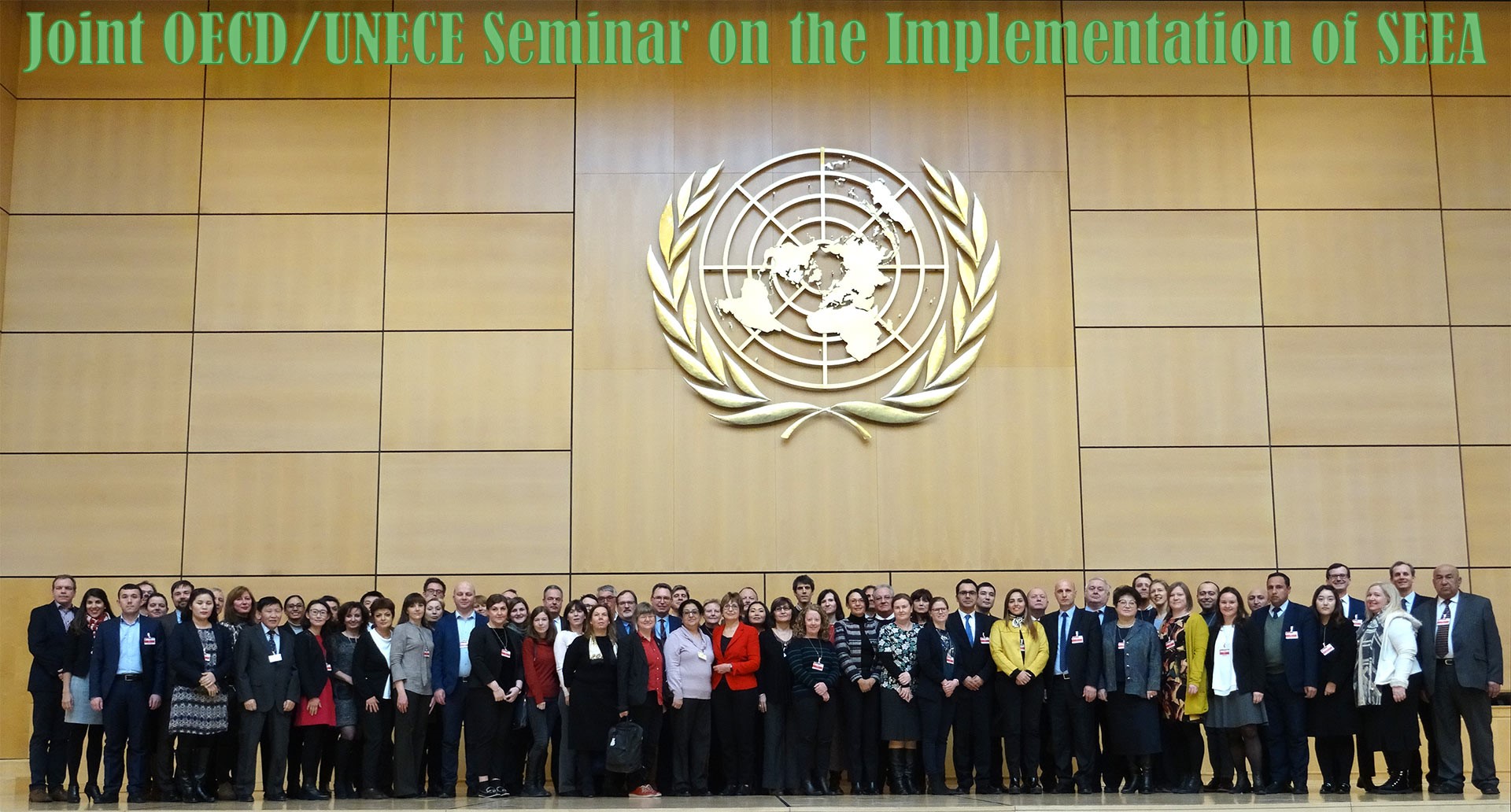Events
21.02.2018
The aim of the 3rd Joint OECD/UNECE Seminar on the Implementation of the System of Environmental-Economic Accounting (SEEA) was to provide a platform for exchange of knowledge and experiences on SEEA implementation and to facilitate coordination between all relevant partners in the UNECE region. The Seminar brought together representatives from UNECE and UN Statistical Divisions, UNEP, OECD, World Bank, Eurostat, European Environment Agency, International Union for Conservation of Nature. Among the participants there were leading experts in the field of environment and statistics from Argentina, Armenia, Australia, Belgium, Bosnia and Herzegovina, Hungary, Kazakhstan, Lithuania, the Netherlands, Norway, Mexico, Russia, Sweden, Switzerland, Japan and many other countries. Discussions focused on the five priority accounts identified by the UNCEEA for the development of international databases: energy accounts, air emission accounts, economy-wide material flow accounts, water accounts and land accounts.
The Seminar included following sessions:
Session 1: National SEEA implementation plans. This session was organised and chaired by OECD and UNECE. The session discussed how national SEEA implementation plans can be developed, how implementation priorities can be identified and how common challenges could be addressed. The Session presented Overview on the current status of SEEA implementation in the UNECE region, good case examples by experienced countries, recommendations to countries to establish a national implementation plan, possible solutions on how to overcome certain challenges; suggestions for implementation commitments; list of priority areas and related challenges.
Session 2: Guidelines for SEEA Implementation and new ways to generate data This session was organised and chaired by Statistics Sweden and the Australian Bureau of Statistics. The objectives of the session were to update participants on available technical guiding material (e.g. renewed SEEA website, electronic training courses, technical notes, technical recommendations in support of SEEA Experimental Ecosystem Accounting, etc.); and to present new and emerging ways of producing data for SEEA. The outputs of the session were exchange of knowledge and experience in using new ways to generate data; and recommendations for further development of guidelines and recommendations.
Session 3: Coordination of Capacity building activities. The session was organised by Eurostat and UNSD. Is contributed to the coordination of capacity building activities carried out by international organisations and National Statistical Offices of some countries. International organisations and selected countries gave an overview of their recent, ongoing and planned capacity building activities. The session was also aimed at identification of possible cooperation for improvement of providing technical assistance.
Session 4: Policy applications of SEEA. The session was organised and chaired by Statistics Netherlands and Statistics Canada. Its goal was to give some good examples on the policy use of SEEA. The session also discussed communication strategies in using the SEEA.
Session 5: Conclusions and recommendations for further work. The final session discussed and agreed on recommendations for further advancing the implementation of SEEA in the world.
Our experts Georgy and Marina Fomenko made a presentation Experiences from SEEA Projects implemented in the Russian Federation at the national, local and municipal level within the Session 4: Policy applications of SEEA. The presentation included the overview of the large experience in the field of SEEA implementation, economic evaluation of ecosystem services aimed at support of environmental management and environment protection. It described pilot researches connected with possibilities of SEEA implementation at the national, local and municipal levels which were made on the instructions of Russian Ministry of Environment and Natural Resources, Russian Statistical Service and other government agencies. The presentation also included main conclusions and problems of SEEA implementation in Russia on different levels.

